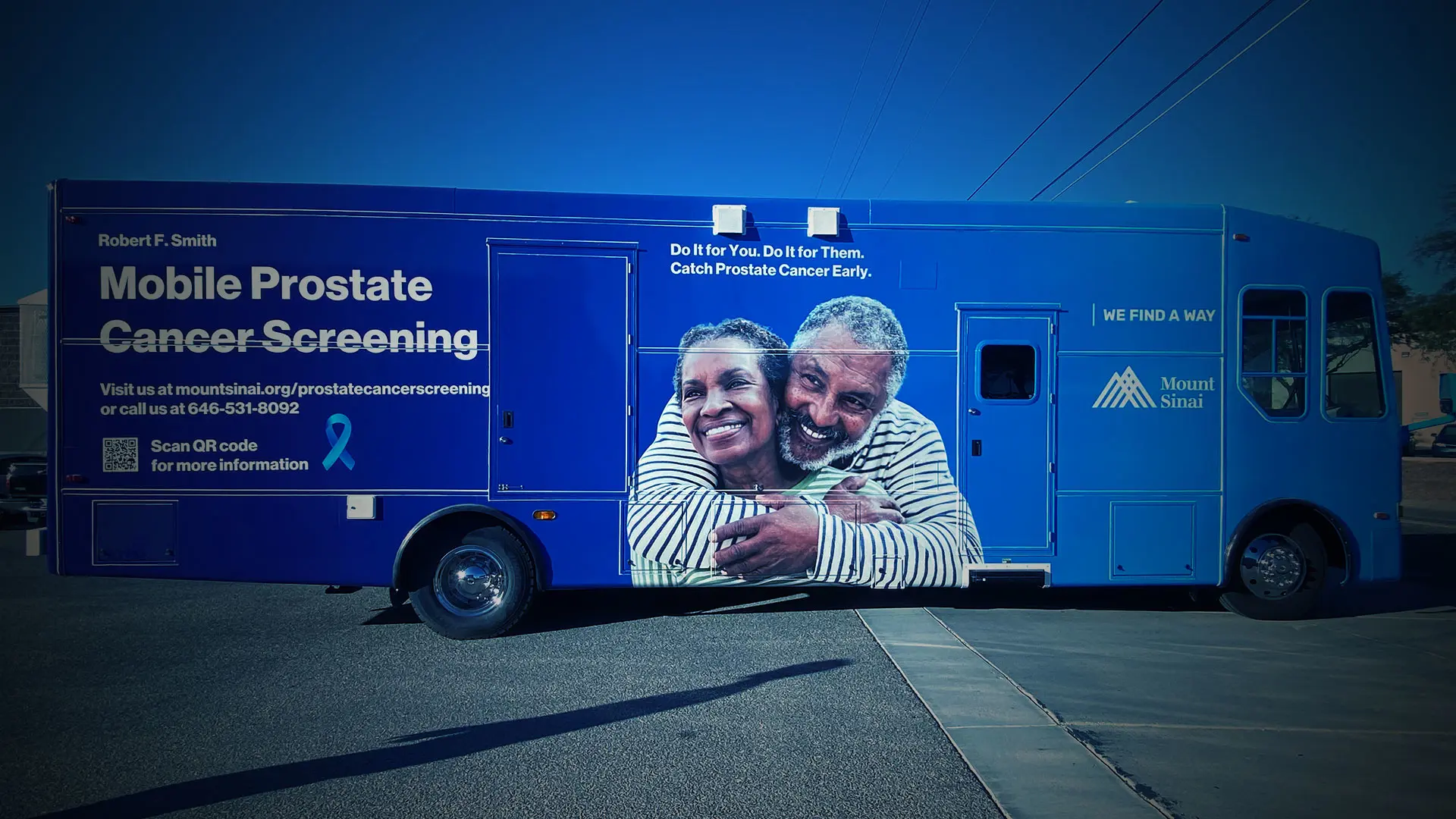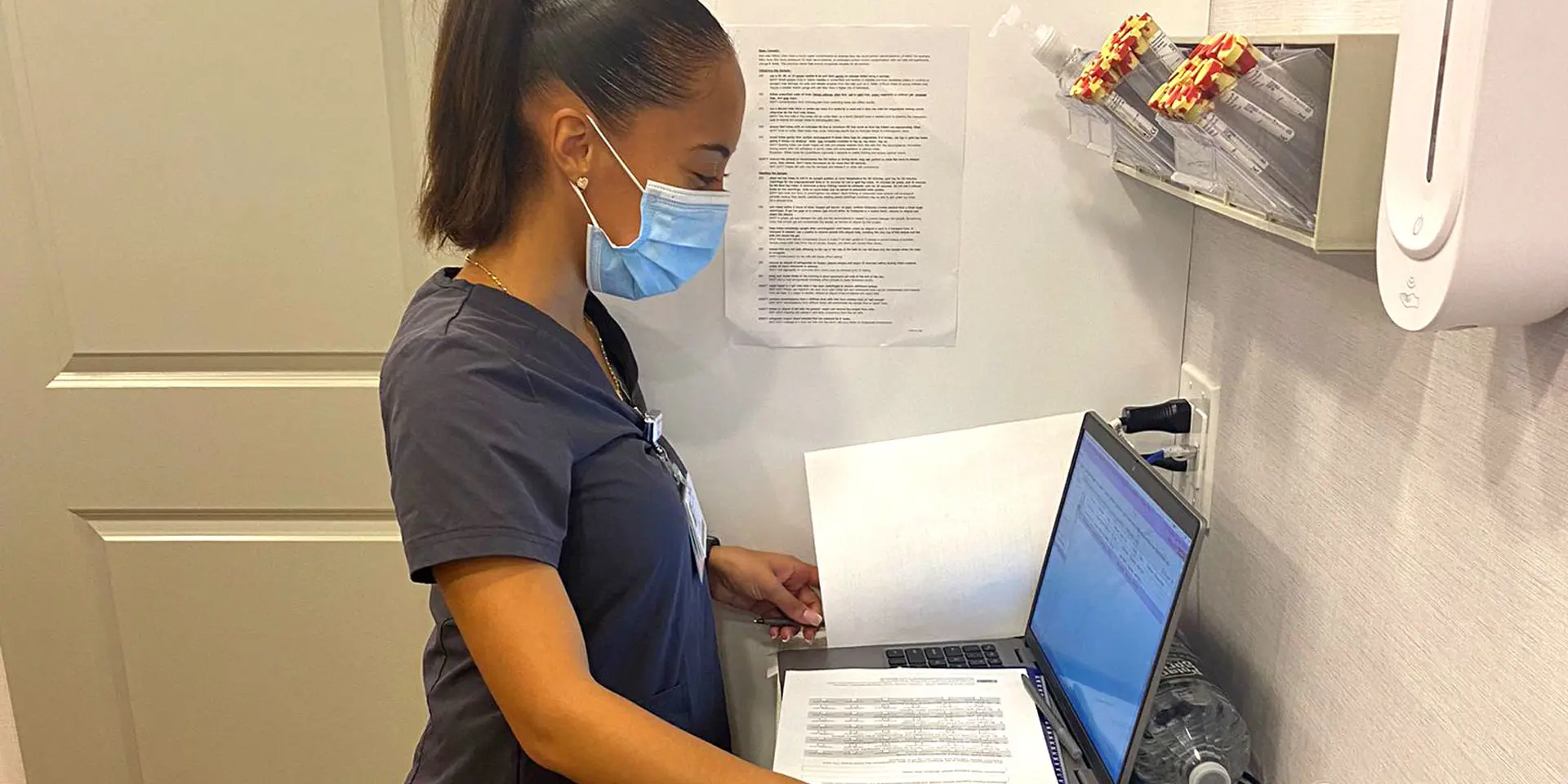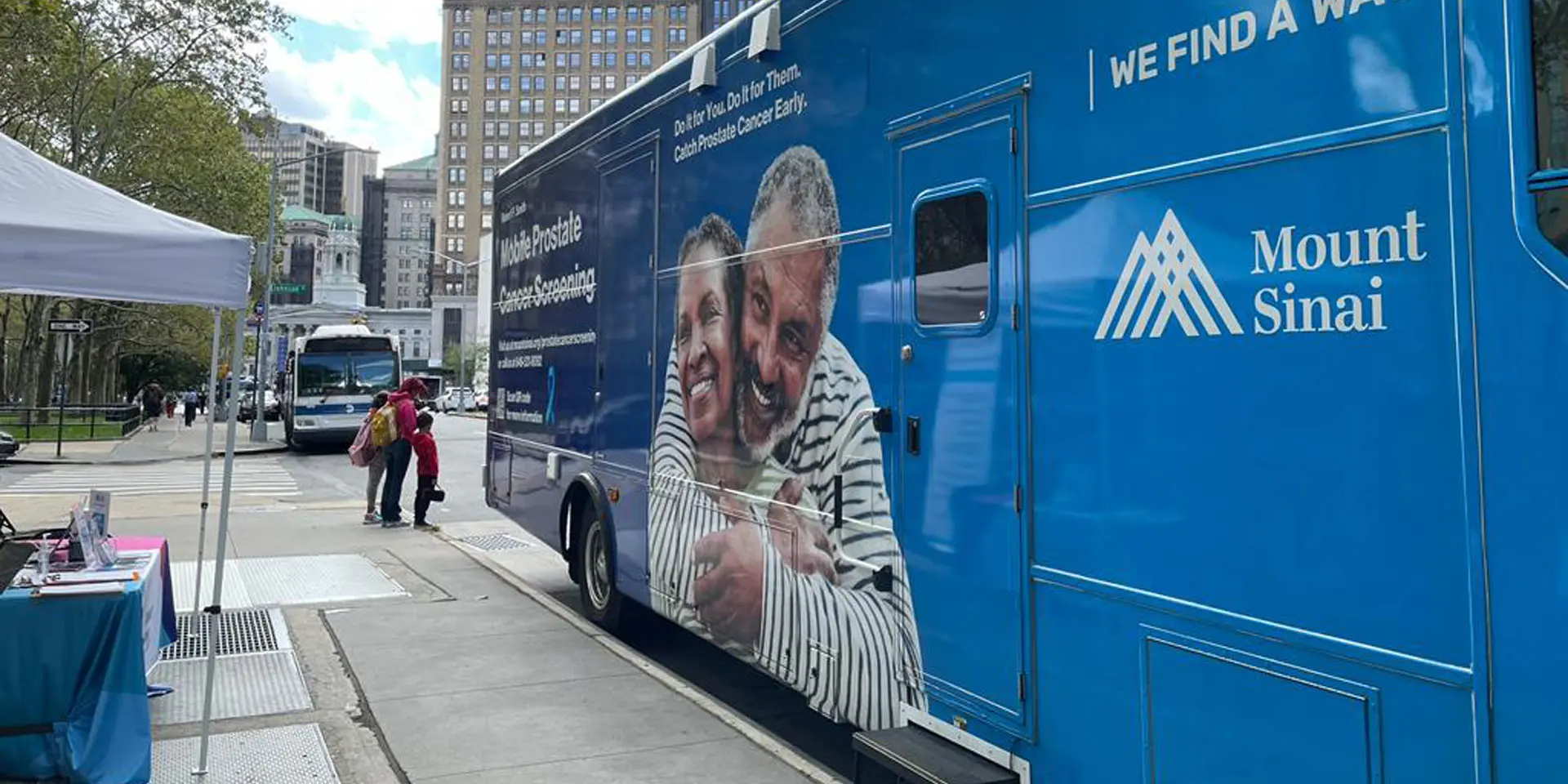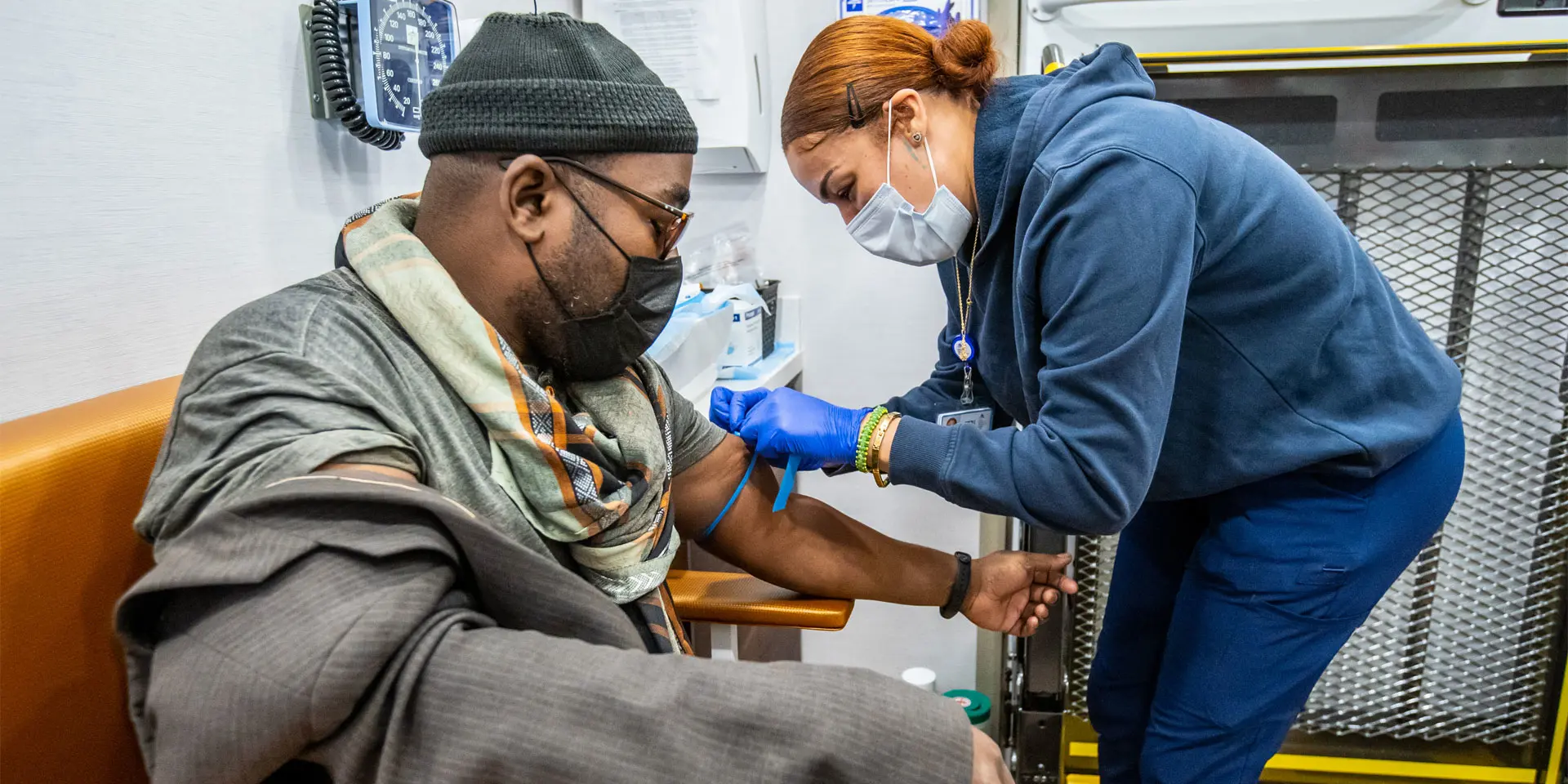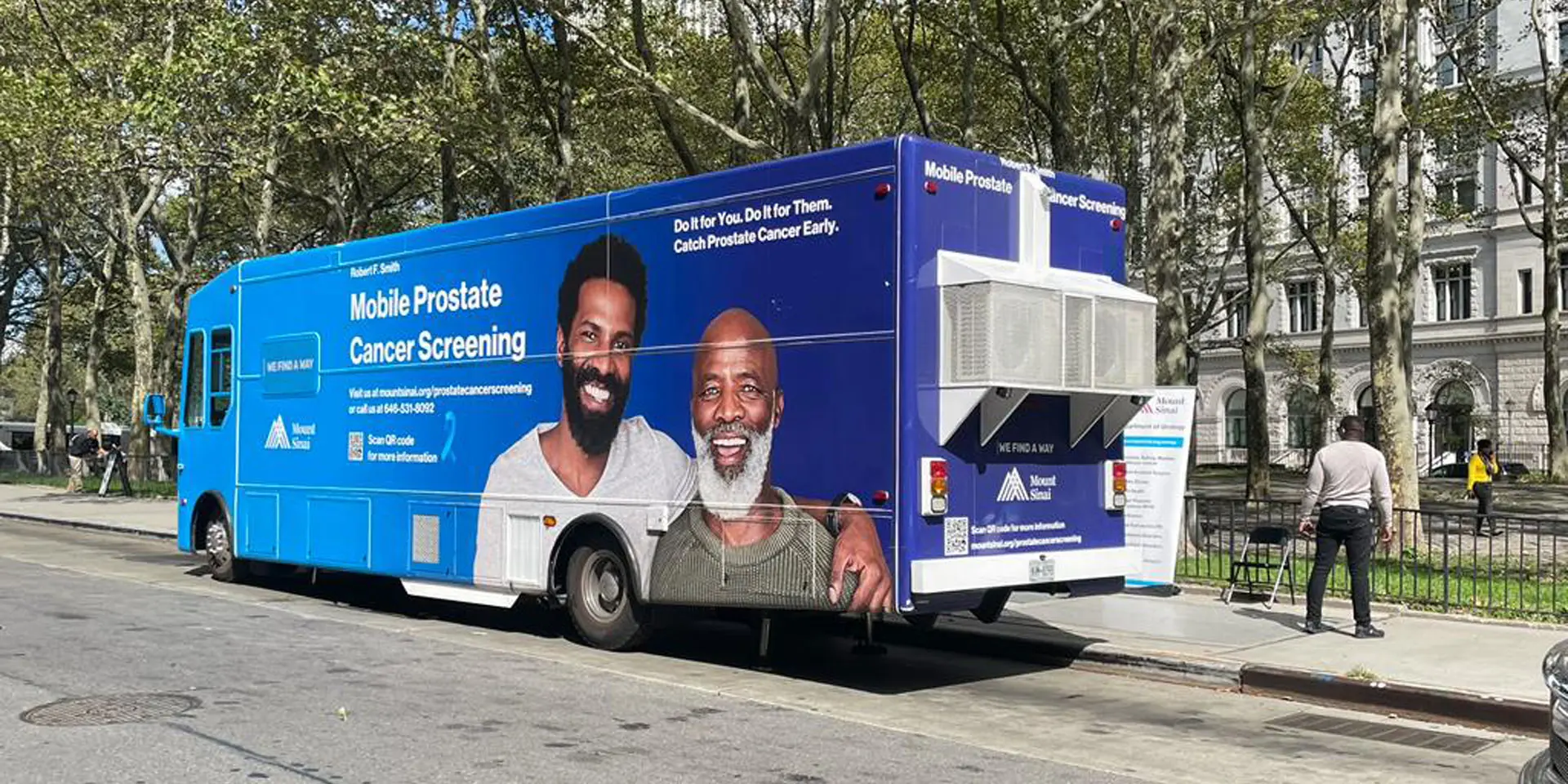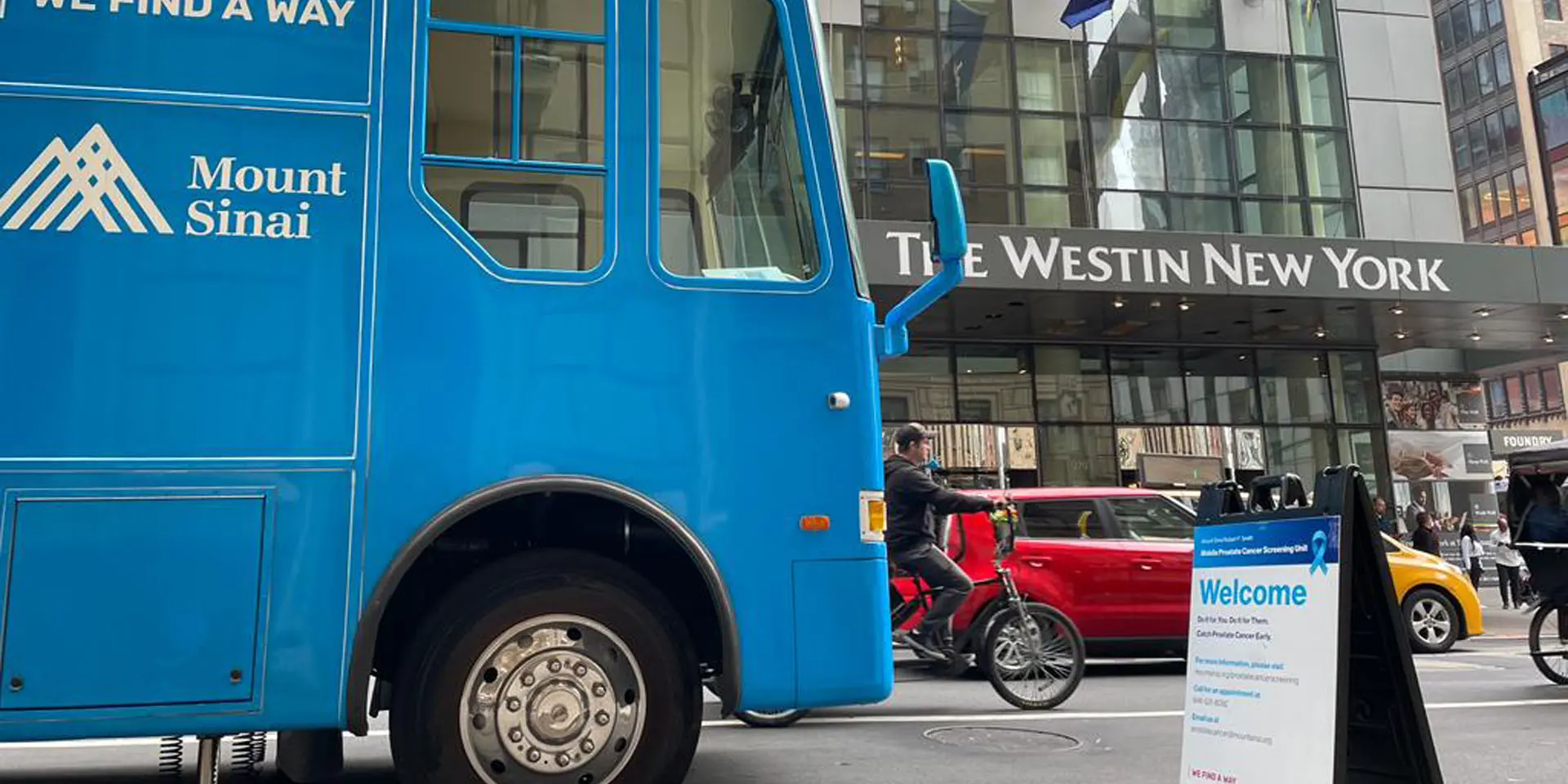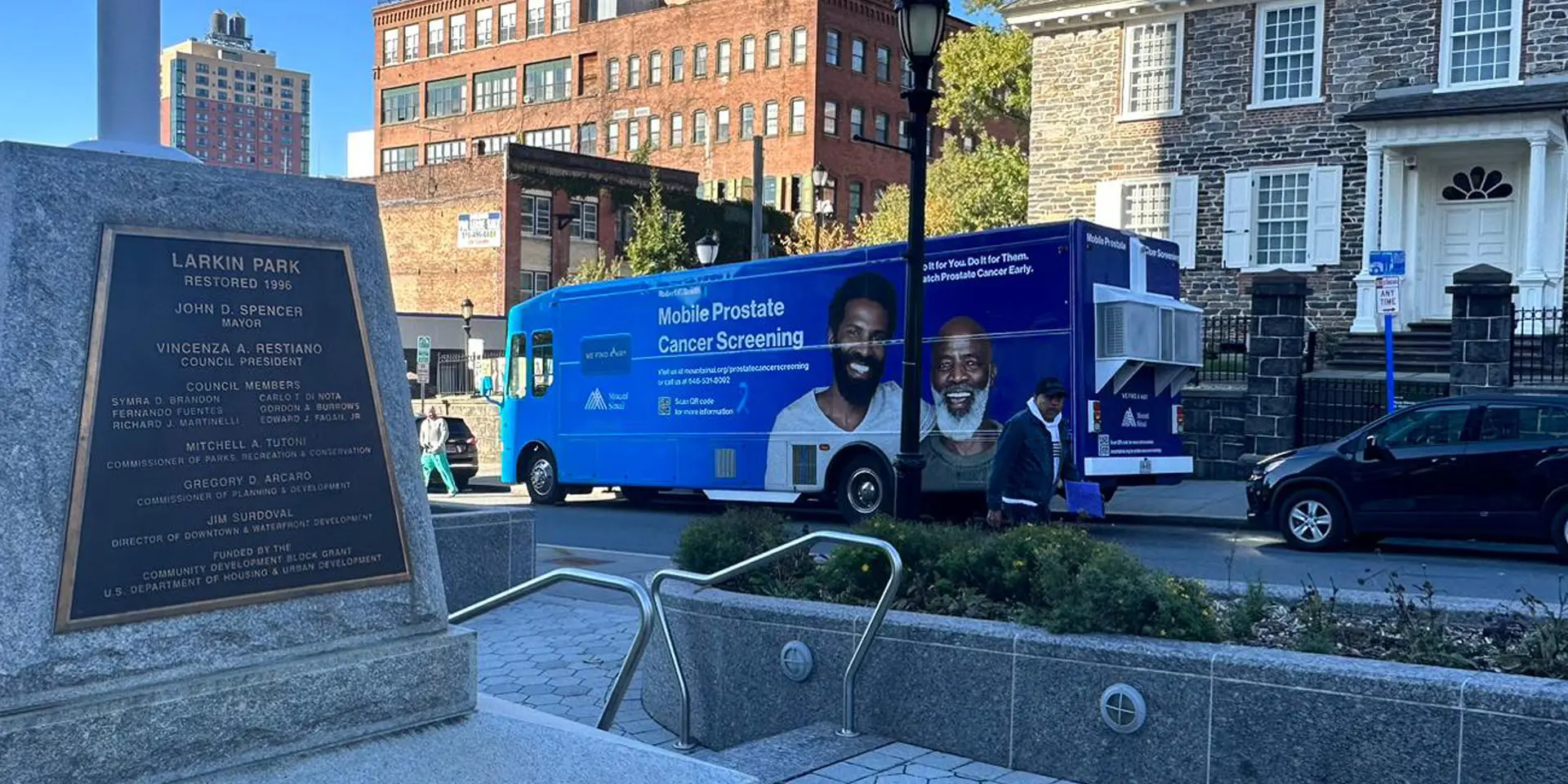An innovative effort by the Milton and Carroll Petrie Department of Urology and Ash Tewari, MBBS, MCh, FRCS (Hon.), Professor and System Chair, to improve early detection of prostate cancer among at-risk populations in New York City is proving to be an amazing success in its first year.
The Mount Sinai Robert F. Smith Mobile Prostate Cancer Screening Unit was launched with great expectations and much fanfare on April 1, 2022, including being featured on national television on the Today show. Funded by a $3.8 million donation from philanthropist Robert F. Smith to support a proposal prepared by Dr. Tewari, the mobile unit goes into communities with large numbers of at-risk men to educate all men about the prostate while providing prostate cancer screening and referring for treatment when needed.
The mobile unit was envisioned and directed by Dr. Tewari, who wanted Mount Sinai clinicians to meet patients where they live.
“Our goal is that with increased education, awareness, and access to testing, we can help detect prostate cancer early, save lives, and close the gaps in high-risk diagnostic and fatality rates,” says Dr. Tewari, who is also Director of the Center of Excellence for Prostate Cancer at The Tisch Cancer Institute at the Icahn School of Medicine at Mount Sinai and Surgeon-in-Chief of the Tisch Cancer Hospital at The Mount Sinai Hospital.
In fact, for the first eight months of operation, the team saw more than 1,800 patients, surpassing its initial goal for the first year of 1,000. Importantly, 69 percent of those seen were Black men. Between 15 percent and 18 percent of all those screened had a PSA of 2.5 or above. They were referred for follow-up care with a urologist.
In addition, as part of this effort, the Department’s multidisciplinary team worked with local churches, health centers, and community groups. The Department has partnered and supported more than 115 events at local churches, street health expos, and charity events throughout New York City and in nearby Westchester and Orange counties, as well as visits to Atlanta and Orlando. The bus also participated in the annual African American Day Parade in Harlem.
“We are reaching out to people who need PSA testing and people who are not aware of prostate health and prostate cancer, and we're trying to educate them,” says Vinayak Wagaskar, MBBS, Clinical Instructor in the Department of Urology, who is the urologist on board the mobile unit. “We notice their reaction before coming and after coming. Most of the time they feel really happy about coming to the unit.”
Prostate cancer has a much higher incidence in the Black community. Black men are 70 percent more likely to be diagnosed with prostate cancer and are nearly 2.5 times more likely to die from the disease compared with white men. As shown by previous work by Dr. Tewari and his team, one of the reasons for this is access to health care, which the mobile screening unit is designed to address.
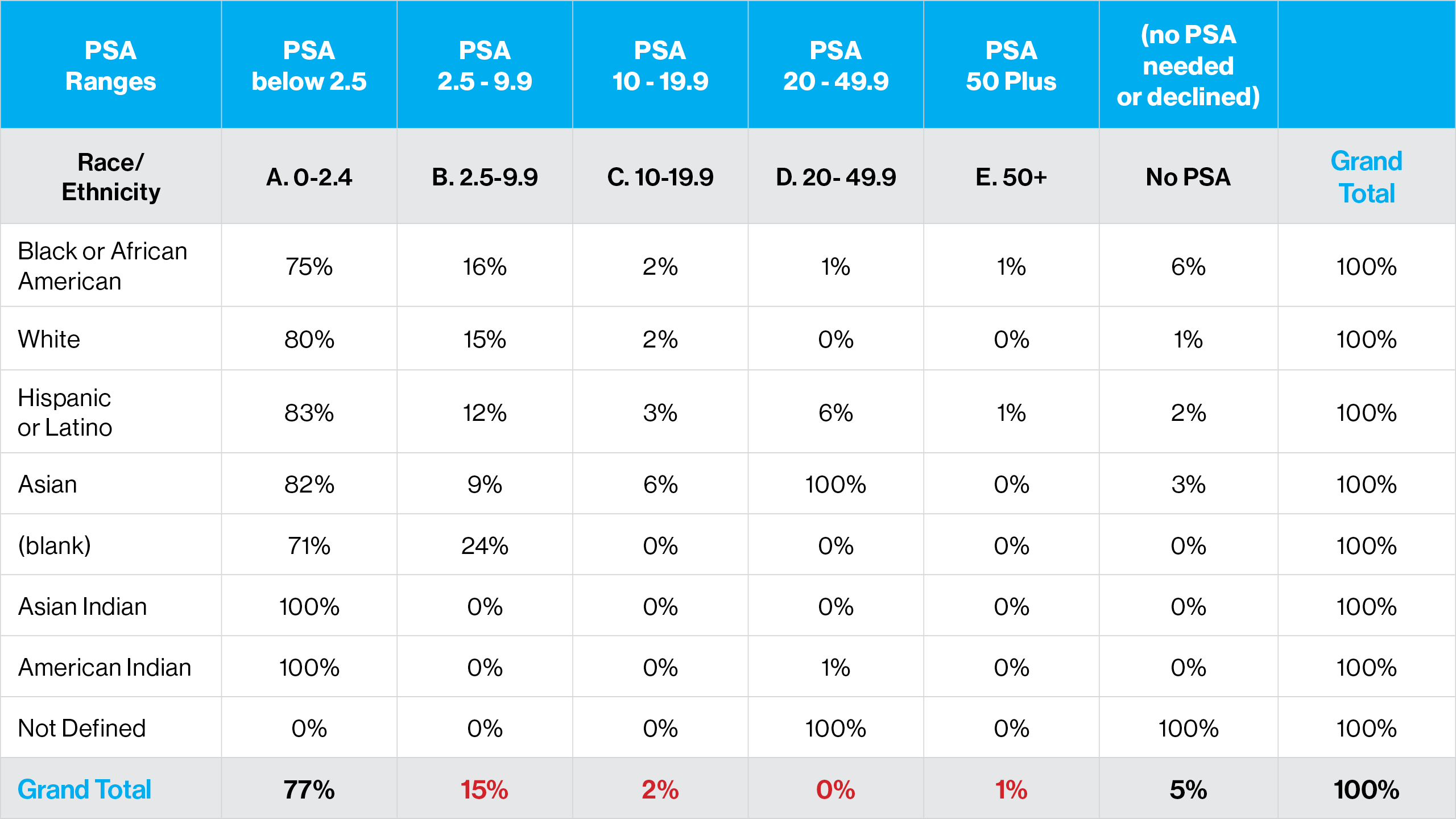
Between 15 percent and 18 percent of those screened had a PSA of 2.5 or above. They were referred for follow-up care with a urologist.
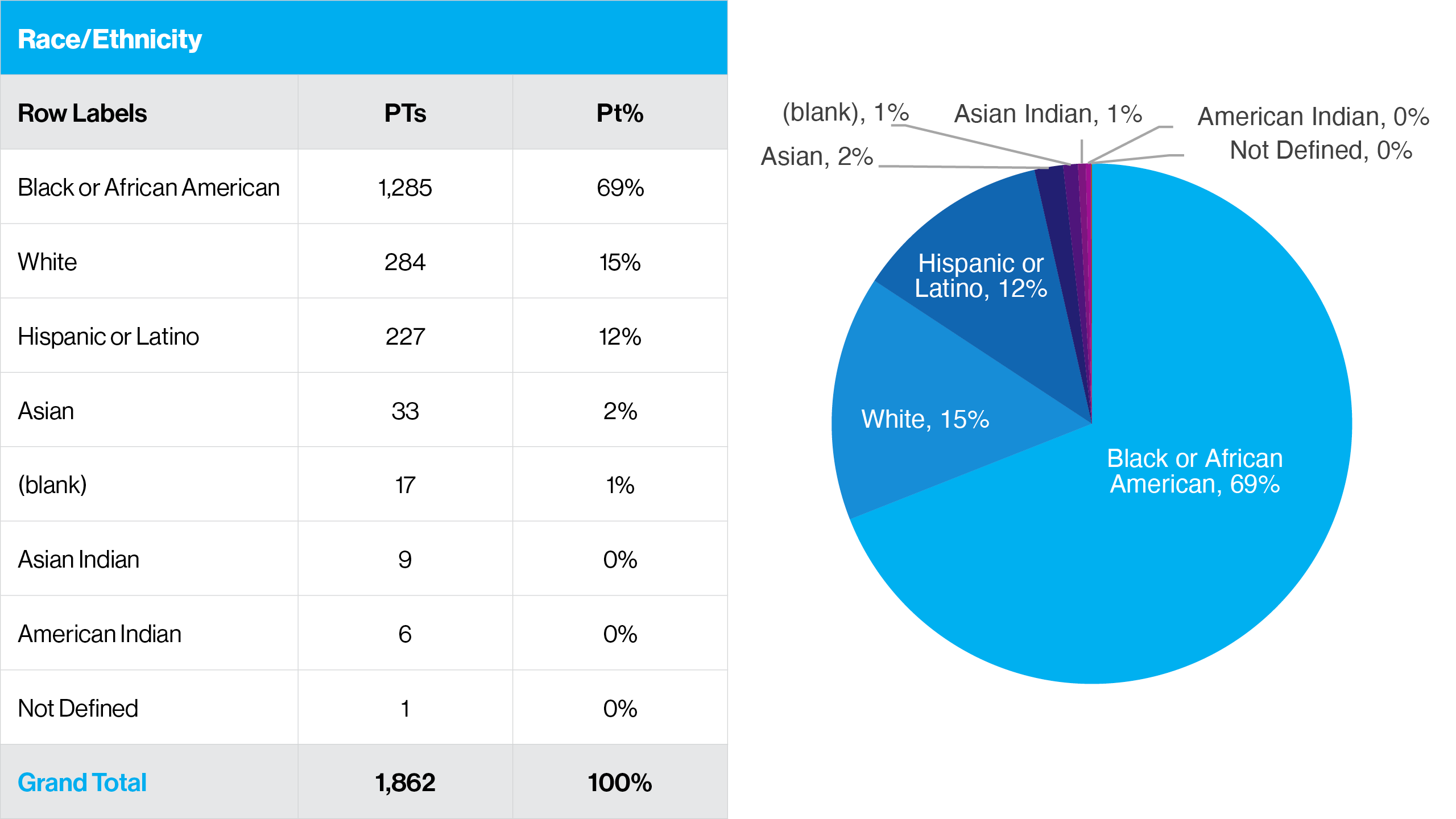
For the first eight months of operation, the team saw more than 1,800 patients, with 69 percent of those Black men.
The mobile prostate cancer screening unit goes to neighborhoods with high concentrated populations of Black men, providing access to education and screening for this underserved population. Since its launch, the unit has visited Harlem and parts of the Bronx, Brooklyn, Queens, and Long Island. It visits neighborhoods at least three days each week, including weekend days for the convenience of patients. At each visit, 25 to 30 men are screened.
“Our idea is to extend the reach of prostate cancer early detection,” say Dr. Tewari and Nihal Mohamed, PhD, Director of Patient Education and Behavioral Research. “We use shared decision-making, a process in which the provider shares information regarding prostate cancer screening, the benefits and harms of screening, and takes the output from the patient. Then, based on those mutual discussion points, patients opt for the PSA testing or not.”
Screening includes taking vital signs and PSA testing, and may extend to blood tests for infections, a bladder scan, EXACTVU micro ultrasound, rectal exam, and genomic testing. The mobile unit has testing equipment and a private room for physical examinations.
The mobile unit team is staffed by several urology faculty, two medical assistants, and a driver, along with a registration coordinator and the program director who plan and organize the visits, according to Yohaira Rojas Guzman, Administrative Director of the program. The team may be joined by an additional medical assistant or a nurse practitioner. Other health care providers who support the unit include Osama Zaytoun, MD, Michael Gorin, MD, Dhruti Patel, MD, and Ian Haas, PA.
The mobile unit’s screening of vital signs also has pointed out other potential health issues for some patients.
“We want to fight this cancer when it is smaller, weaker, and confined to the prostate and not wait for it to become a bigger problem and spread to bones,” says Dr. Tewari, who is extremely passionate about this initiative. “I want to take this fight to the patient’s home and neighborhood and not wait to find the same cancer a few years later when it is unmanageable.”
The Mount Sinai Robert F. Smith Mobile Prostate Cancer Screening Unit was launched with great expectations and much fanfare on April 1, 2022, including being featured on national television on the Today show.
Insurance Information in New York State
Prostate cancer screenings for insured patients typically have no out-of-pocket costs. New York State residents who don’t have insurance may be eligible for screenings through the New York State Cancer Services Program if they meet income and age eligibility criteria. For more information, call 1-866-442-CANCER (2262).
